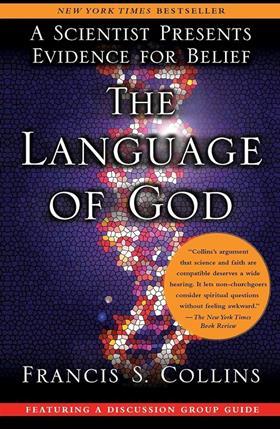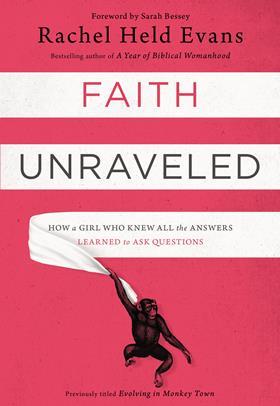Hosted by Claire Musters
This month I’m reading…

If the Ocean Has a Soul: A marine biologist’s pursuit of truth through the deep waters of faith and science
By Rachel G Jordan (979-8400505843, Tyndale)
Rachel G Jordan is a marine biologist who is passionate about both faith and science. This, her first book, takes us on a journey with her through some of her favourite as well as most challenging dives, where she presents the underwater world through beautiful descriptions and shares theological musings. Through her depictions of creation (each chapter centres around a particular species or area of the world) she also reveals more of God’s character and draws parallels with everyday life to share the faith lessons she has learned.
A thought-provoking and unusual title, Rachel shares her unique professional experiences to take us all on a “deep dive into ecology and theology”.
How did you first become interested in the ocean and what was your route to becoming a marine biologist?
When I was a kid, my family made annual pilgrimages to the west coast of the US. Some of my earliest memories are of clambering over rocky ledges with my parents who were teaching me to gently poke sticky green sea anemones in tide pools. This was what sparked my curiosity for the ocean.
As the book notes, my route to becoming a marine biologist has been filled with twists and turns. I’ve often described it as a series of doors that slammed in my face, which God then helped me break down. On paper, my trajectory sounds fairly straightforward: I got a BS in ecology, then a MS in marine biology, then a job and then another job…But that does not account for the rejections, discouragements and failures. I wouldn’t have made it in marine biology if God hadn’t been the one directing my steps.
Right near the start of the book you say: “Tide pooling is a bit like searching for truth” – could you explain what you mean by that?
The best tide pools are found in rocky intertidal zones when the tide goes out, but it’s hard work to get to the coolest critters. Climbing over wet rocks encrusted with sharp barnacles and slippery algae is precarious. The hot sun beats down and there are crashing waves nearby. But discovering colourful, unique creatures in a tide pool makes every moment of struggle worth it. Just so, searching for truth can feel challenging and dangerous, but finding it is beyond incredible.
You discuss the relationship between faith and science, saying we need both. Could you explain why here, and how science has helped deepen your faith?
We need both because faith tells us ‘why’ things are the way they are while science describes ‘how’ things are the way they are. Theology and ecology fit together to give us a fuller picture of creation and God’s plan for it.
Science has helped me to ask questions about faith that I probably wouldn’t have known to ask otherwise. These questions have catalysed some of the deepest, most intimate moments of my relationship with God. My faith has made me a better scientist as well because I see God’s character reflected in the natural world and it brings hope into challenging moments where there would not otherwise be any.
You go on to say: “Faith and science run into some of the same issues. Both are conducted by flawed human beings capable of making notoriously large mistakes.” Could you expand this statement here please?
Humans are sinful; it’s as simple as that. At times, we misunderstand our faith just as easily as we can misunderstand science. We can bring biases, expectations and eisegesis to both the biblical text and the scientific method – even though we’re not supposed to. It is possible for us to get things wrong in both instances, which is why both faith and science should be active, personal pursuits, where we take responsibility and strive to engage with both.
You reveal some of the realities of what life is like in the ocean – such as the noises within the reef, and say that the beautiful ocean ‘choir’ is indicative of biodiversity. Why is biodiversity so important for biological reasons – and what is its spiritual value?
Biodiversity strengthens ecological communities. Different organisms have different roles in their environment. What a seahorse does is different to what a coral does, which is still different from what a whale does. When we have lots of different kinds of organisms in an environment (biodiversity), that environment is better able to withstand changes and potential problems.
Spiritually, biodiversity maximises creation’s praises to God. A seahorse praises God differently than a coral or whale does. By maintaining and promoting biodiversity, we maximise an ecosystem’s capacity to praise God.
You say that while the “natural world is no longer a perfect illustration of the one who created it” there are still glimpse and hints of him to be found. What is the most surprising thing you have learned about God through your work?
One unexpected revelation is that God continues to create. He did not perform every act of creation at some past point in time, but instead he chooses to actively participate in the world, creating new things in the present time. New species arise through modern speciation. Ecosystems shift and transform, diminishing or flourishing. People’s lives change because of relationship with him. His creation is dynamic, not stagnant, because God chooses to work through change over time – actively bringing his restored kingdom to the world. He is making all things new!
What have you learned about suffering and death as you have studied marine life?
What I’ve learned about suffering and death is impossible to meaningfully sum up in a single, short answer (perhaps that is why my book is so long). But one of the key things I’ve observed while working in the ocean is that God works through suffering in a way that I did not previously know. More specifically, God uses interactions between the sufferer and their surrounding ecosystem in unexpected ways to reveal himself.
For one example, we might consider the sea star with necrosis that I rescued in an aquarium. While I do not know the purpose for the sea star’s suffering, I can confidently say that my own interaction with this creature taught me about the transcending love of God – how he may mercifully cut away parts of us that lead toward death, even where the process is painful to us.
What practical steps can people take to care for the environment, including the ocean, and how might this impact their faith?
There are many online resources that provide fantastic suggestions for the daily ways you can care for the environment: recycle, conserve water, carpool, avoid pesticides, support coastal communities, fund research and restoration, etc. That said, the best thing you can do for the environment is find the ways that you, specifically, best enjoy caring for it. Whatever you decide, I suggest praying about it and making sure that it’s realistic and do-able for your situation. It’s OK if the changes you make are small. (Little things can add up to create big changes.)
Here are a few examples that have worked for me: a few years ago, I switched from single-use plastic wrap [cling film] to cover leftover food to washable beeswax-coated cloths. A while later, I started keeping empty single-use containers (like plastic bottles and glass jars) in my kitchen cupboard and reusing them. This spring, I planted predominantly wildflowers in my garden, in the hopes of bringing back local flora and supporting pollinators.
The beauty of making changes like these is that they’ve become prayerful practices. I think about nature and my role in caring for it while washing the beeswax wraps and empty containers. I talk to God while digging in the garden. I can include myself in the scene when I’m admiring God’s handiwork in creation.
Rachel G Jordan on: The books that have changed my life
Till We Have Faces by CS Lewis

As a woman, this book made me feel physically and spiritual seen on a whole new level (which is impressive, considering it was written by a man, yet unsurprising, considering that this is CS Lewis). Familiarise yourself with the myth of Cupid and Psyche before jumping into this phenomenal retelling so that you can fully appreciate its exploration of beauty, achievement and intimacy.
The Language of Godby Francis S Collins

This book was the first stepping stone in my personal journey of reconciling faith and science. Distilling complex genetics and theological questions into easy-to-understand language, it is an encouragement to anyone who loves God and is curious about science.
Faith Unraveled by Rachel Held Evans

If you grew up within Christian culture, this personal account will speak to both your spiritual struggles and triumphs. Like the author, I was raised with answers before I learned to ask the questions. But engaging with questions is where we meet with God.
































No comments yet